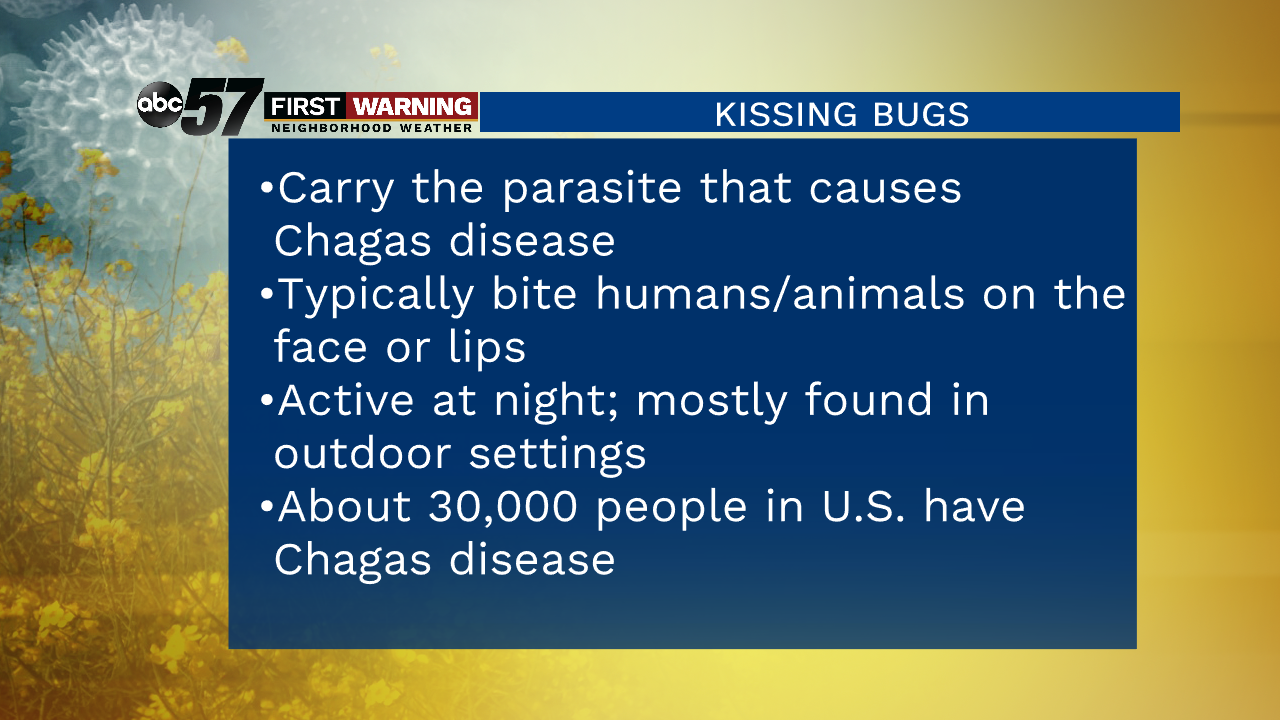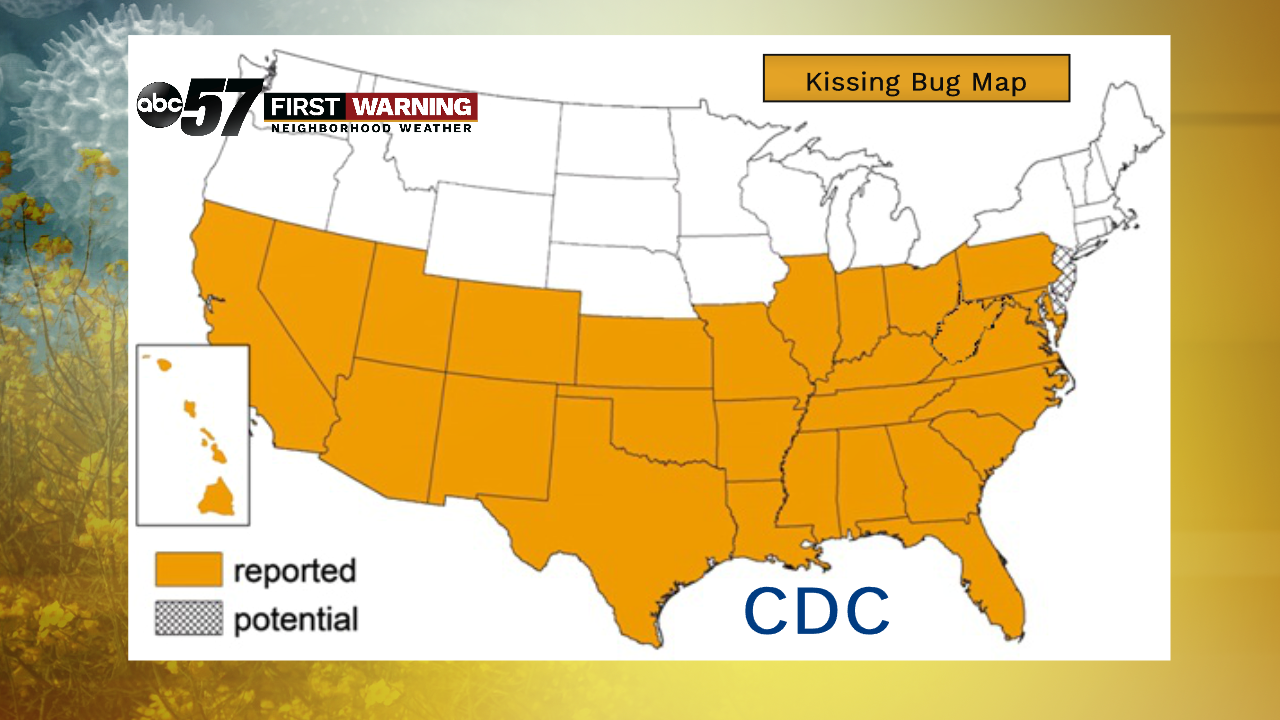A pest that you may not be familiar with is on the move. The dreaded kissing bug has been found in a state that hadn't ever seen one. According to the Centers for Disease Control and Prevention, the state of Delaware has now been added to the growing list of states that have documented the potentially dangerous kissing bug. Indiana and bordering states Illinois and Ohio have already documented the bug in years past.
Kissing bugs, or triatomine bugs, are rather large bugs that measure up to just over an inch in length as adults. They feed on blood of humans and animals, mainly during the nighttime. That's when they are typically the most active.They get the name "kissing bugs" because they oftentimes bite you on your face or lips while you are sleeping. But it's not just the fact that they bite that makes them problematic.
They can carry the parasite that causes Chagas disease. That is the concern surrounding kissing bugs. And it's not their bites that actually cause the disease; rather, it's their feces. If the feces of a kissing bug gets into the bite wound, Chagas disease can develop. The disease has both an acute and chronic phase. If untreated, it can be lifelong.The acute phase occurs immediately after infection, and can last a few weeks or even months. Symptoms are usually mild or non-existent. If symptoms occur, they are usually tied to fever or swelling near the site of infection.
After the acute phase, most people enter a prolonged asymptomatic period of the disease. Many won't deal with complications from the disease again. However, according to the CDC, about 20-30% do develop severe to possibly life-threatening medical problems. Typically those problems are cardiovascular or gastrointestinal.
"In the U.S. there are quite a few people who have Chagas disease. The best estimates are somewhere in the neighborhood of 30,000 people. But it's mostly people who contracted it in Central or South America and then traveled to the U.S. already with the infection in their blood. It's very rare that people get exposed to Chagas disease by insect bites in the U.S." That's what Dr. Brian Allan, a medical entomologist at the University of Illinois, said about the disease.That is certainly good news overall. However, kissing bugs and Chagas disease may become much more concerning rather soon for Michiana and surrounding regions.
When asked about the northward movement of kissing bugs over the years, Dr. Allan said "It's probably a combination of factors that are contributing to these expanding ranges; climate change is one likely driver."
"It's probable that this kissing species, other kissing bug species, could continue to expand in range and particularly expand northward as climate becomes more favorable for them to move north."




